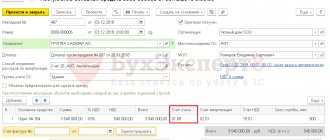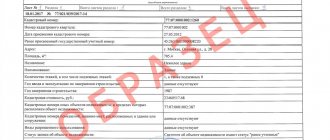An exchange agreement is an agreement under which the parties exchange property that belongs to them by right of ownership.
- Form and sample
- Free download
- Online viewing
- Expert tested
FILES
The subjects of an exchange agreement can be legal entities and individuals, as well as the state and municipalities. In other words, the parties to this agreement may be any legally capable persons.
An exchange agreement can be concluded either orally or in writing. An important nuance is that an oral conclusion is possible only if the subject of the contract in its value does not exceed the minimum wage by ten times. Contracts, the cost of the subject of which exceeds ten times the minimum wage, are drawn up in writing.
Below, using the example of a car exchange agreement, we will look at how such a document is drawn up and what nuances you should pay attention to when drawing it up.
Barter agreement
Kurgan
May 24, 2023
We are: Denisov Denis Denisovich, born on March 11, 1999, living at the address Kurgan region, Kurgan city, Peter the Great street, building 88, apartment 324, passport XXXXX XXXXXXX, issued by the Federal Migration Service of Russia for the Kurgan region in the city of Kurgan on March 11, 2019, hereinafter referred to as Seller 1, on the one hand, Ilyin Ilya Ilyich, born on March 12, 1999, living at the address Kurgan region, Kurgan city, Cheryomushki street, building 874, apartment 398, passport XXXX XXXXXXX, issued by the Federal Migration Service of Russia for the Kurgan region in the city of Kurgan on 03/12/2019 , hereinafter referred to as Seller 2, on the other hand, have entered into this agreement as follows:
The preamble to the agreement traditionally states:
- type of transaction;
- place and date of conclusion of the agreement;
- names and roles of parties to the contract;
- residential address and passport details of individuals.
An exchange agreement, like other transactions, has essential conditions, without which it cannot enter into legal force. In our case, such conditions include:
- subject of the contract;
- the actual value of the property that is the subject.
Item
Information about the subject of the contract is the basis of any agreement. In the case of an exchange agreement, the object itself is the property itself, which is exchanged by the Counterparties. At the same time, it is important to indicate comprehensive characteristics of this property so that no disagreements arise later. In an exchange agreement where the subject is the parties' cars, the following characteristics are indicated: - make of the car; — year of manufacture of the vehicle; — VIN number; - engine capacity; — color of the vehicle; - registration number; — vehicle passport; - registration certificate. So, information about the subject of the agreement in the text of the document is written as follows: The parties, in accordance with this agreement, transfer to each other the following vehicles that belong to them by right of ownership:
Denisov Denis Denisovich transfers in favor of Ilyin Ilya Ilyich a passenger car of the daewoo nexia brand, manufactured in 2011, VIN number - ХХХХХ-ХХХХХХ, engine number - 00000000, engine capacity - 1.4 l., body number - 0000000, color - white, registration number - Х ХХХ ХХ ХХ, vehicle passport – ХХХХХХ, issued (by whom) ХХ ХХ ХХХХ (date of issue). Ilyin Ilyin, in turn, transfers in favor of Denisov Denis Denisovich a passenger car of the Datsun on-Do brand, manufactured in 2011, VIN number - ХХХХХ-ХХХХХХ, engine number - 00000000, engine capacity - 1.4 l., body number - 0000000, color - silver, registration number - X ХХХ ХХ ХХ, vehicle passport - ХХХХХХ, issued (by whom) ХХ ХХ ХХХХ (date of issue). At the time of exchange, the actual cost of each car, as approved by both parties, is set at 450,000 (Four hundred fifty thousand) rubles 00 kopecks. The parties are the owners of these vehicles based on the provision of technical passports. Cars do not belong to third parties by right of ownership, are not pledged or seized.
Swapping apartments: when is it more profitable than buying and selling?
Fedot, but not that one
Barter is an operation in which the parties undertake to transfer one product into the ownership of each other in exchange for another. Simultaneously with the completion of the transaction, each participant receives ownership of the exchanged item.
By and large, barter is the same as buying and selling. The difference is that in the first case the parties pay each other by barter, that is, goods for goods, and in the second - with money.
Transactions under barter agreements are regulated by the Civil Code of the Russian Federation (Articles 567-571).
For transactions under exchange agreements (EA), basically the same rules apply as under sales and purchase agreements (SPA). That is, if apartments worth more than 1 million rubles, purchased less than three years ago, are exchanged, then you will have to pay an income tax of 13%. In the same way, you need to register the agreement with Rosreestr. As with the DCT, the consent of the spouses to complete the transaction is required and it is also not allowed to worsen the living conditions of the child if, as a result of the DCT, he moves from one living space to another.
So we won’t dwell on the general nuances. Better yet, let’s talk only about the specific aspects of barter. They are quite curious.
Who needs it
People rarely resort to me for obvious reasons: finding someone who will be happy with your apartment and whose living space you will like is not easy. But for related transactions, barter is an excellent option.
For example, a couple divorced and they need to divide a three-room apartment, which they owned as shared ownership. And the wife also has her own one-room apartment.
You can, of course, sell this one-room apartment and buy back his share in the three-room apartment from the ex-husband. But the search for a buyer, given the crisis drop in demand, may drag on indefinitely. In addition, you will have to pay to complete this transaction, and then another one to buy out the share.
Mena allows you to amicably resolve the issue in just a month. Unless, of course, the former spouses have mutual claims and they agree to this option.
Another example. Family members received an inheritance from their deceased father. According to the will, each person was assigned property: a son a car and a plot of land, a daughter a dacha. But my son doesn’t need a car, and he doesn’t need land. But a dacha would come in handy.
The daughter, on the contrary, would prefer a car and land. At the same time, both want to keep this property in the family without selling it to strangers. Here, an exchange agreement is the ideal solution, again, if there are no contradictions between the parties.
An exchange agreement will also be more attractive in cases where there is no urgent need to sell or buy a home and you are willing to wait for a suitable exchange option for quite a long time.
Or if you have some money that you are willing to pay extra for improving your living conditions during the exchange. You can’t buy new housing with them, and it’s expensive to start with a mortgage or the loan is not approved. Let's say you would like to exchange your one-room apartment for a similar one, but in another area, more prestigious, by paying the difference in price. In this case, the exchange is justified.
Diamonds interest
What are the advantages of such a deal? When apartments of equal value are exchanged, all payments between the parties are made without money. Therefore, there is no need to pay a commission for a wire transfer, but it starts from 1% of the transferred amount - as a result, a rather large payment accrues.
You won’t have to fork out money for renting a safe deposit box and related services (meeting room, power of attorney for access of the tenant’s counterparties to the safe deposit box, etc.) - monthly expenses would be about 3 thousand rubles.
True, if one apartment involved in the transaction is more expensive than another, then in order to pay additionally you will need to carry out the specified operations. But it will still be less spending.
An exchange agreement is one document, and a written agreement is two: one person sells property, and the second buys it, so a separate agreement is drawn up for each party. Accordingly, you will have to pay the state fee for registering a policy twice – a total of 4 thousand rubles.
The same applies to notarization of a transaction. In fact, the law does not require this.
You can draw up an exchange agreement in simple written form, do without a notary and simply register the document with Rosreestr.
But some people prefer to visit a notary to be on the safe side. His services usually cost about 3 thousand rubles. for certification of one contract (or a percentage of the cost of the apartment). When buying and selling, you will have to pay twice, because there are two contracts. And with me - only once.
Another extremely important nuance concerns the termination of the contract. Let's say that the buyer, for some reason, suspected the seller of dishonesty and through the court obtained the termination of the purchase and sale transaction.
The seller must fully return the money paid for the apartment. But he spent them a long time ago. Then the buyer will have to wait for payment for more than one year and may not wait at all.
If the parties exchanged apartments under the DM, and after that the deal was terminated, then the status quo simply returns: each participant receives their previous apartment. Financial damage will only be suffered by those who, for example, made fresh renovations in a new home - these costs are not compensated.
Income tax on exchange is paid only if the value of the property being exchanged is not the same (remember the condition about the three-year age of the property, which was mentioned at the beginning).
Five steps for pre-sale preparation of an apartment
Mortgage: how to correctly calculate your strength
Top 5 fears of buyers of apartments in cheap new buildings
Why real estate deals fail
Choosing an apartment: how to assess the scale of renovation
For example, you are changing your two-room apartment worth 4 million rubles. for a one-room apartment, valued at 3 million rubles. The second party of the DM will have to pay you an additional 1 million rubles. – and this amount is taxed, and not 4 million. This means that the tax amount will be less.
Not without it
Not everything is so wonderful, of course. DM also has its downsides. We have already named one: if the transaction is not made between relatives or acquaintances, then you will have to look for a long time for an option for exchange.
Secondly, barter contracts are terminated much more often than monetary contracts. The transaction is not monetary, so the valuation of the property is subjective. Suppose our already mentioned heirs exchanged a dacha, a car and a plot. And then the heir’s wife decided that his car and land together were worth more than the dacha. I ordered an expert assessment of the property and took it to court. Usually judges easily agree with such arguments.
Difficulties are also possible with the tax authorities.
Tax officials may consider that the apartments being replaced are unequal in value and suspect you of trying to evade paying taxes.
Then the deal will be suspended, and you will have to explain things to employees from the tax service.
What do you need
The exchange agreement must contain all the information about the apartments being exchanged (land plots, houses, etc.). This is not only the address and the number of rooms with areas, but also the numbers and dates of registration of documents on the basis of which the property belongs to the owners.
If apartments have cadastral numbers, then technical and cadastral passports for such real estate do not need to be attached to the general package of documents. Otherwise, you will have to order these documents from the design and inventory bureau (PIB, in some regions this government body is called the technical inventory bureau - BTI).
If the contract does not specify the value of each exchanged object, then they are considered equal.
When the value is indicated, you will have to attach an expert certificate of valuation of the property.
In the case of different costs of objects, it is necessary to note whether an additional payment is made, in what form (cash or non-cash), and within what time frame.
It would be useful to stipulate that if, after registration of the DM, the apartment is seized by third parties, then the other party undertakes to fully compensate the injured party for all losses.
Those who take the time and carefully study the information on the Rosreestr website and also correctly draw up an agreement will not have any unpleasant surprises during the exchange.
Text: Nadezhda Rogozhkina Photo: Philip Urban
Rights and obligations of the parties
This section specifies the obligations of the parties under this agreement. However, drawing up a section is not a prerequisite. But we still recommend drawing it up in order to avoid controversial situations in case of misunderstanding between the parties. So, below we give approximate wording within this paragraph:
The parties have the right to: • Demand the transfer of ownership of the vehicles specified in the clauses on the subject of the agreement. The parties undertake to: • Transfer to each other the vehicles specified in the text of the document in technically sound condition. • Report all shortcomings, hidden defects and breakdowns, if any. • Transfer ownership of the vehicles stated in the subject section to each other within 3 (three) days from the date of signing the agreement. • Fulfill your obligations in strict accordance with this agreement.
Concept
By agreement, a person exchanges the housing he owns for another housing or other things (garage, land, car).
If the exchange is unequal, one of the participants pays the difference in value in money .
In the text of the contract, the cost of the apartments is indicated only in rubles, even if one party actually transfers currency to the other.
Such an agreement is concluded only in relation to an apartment owned . When exchanging non-privatized housing, when it comes to exchanging the rights to conclude a rental agreement, the transaction is governed by other legal norms.
The rules governing exchange relations are contained in Chapter 31 of the Civil Code of the Russian Federation. According to Article 567 of the Civil Code of the Russian Federation, the rules of Chapter 30 are applied to this agreement, which do not contradict Chapter 31 and the essence of the exchange action. In this case, it is considered that the parties to the agreement are both the seller and the buyer.
An overview of judicial practice in this area is given in the letter of the Presidium of the Supreme Arbitration Court of the Russian Federation No. 69 dated September 24, 2002.
You can learn about how to exchange a three-room or two-room apartment, how to change a room in a communal apartment or dormitory, as well as in what cases a forced exchange is carried out through the court from our articles.
Responsibility of the parties
Also an important factor is the preparation of a section on the responsibility of Counterparties. This is primarily due to risk reduction. Below we present the main provisions that may be written in the text of the document:
The parties bear financial liability in the event of non-fulfillment or improper fulfillment of obligations under this agreement. Counterparties are responsible for deficiencies in the alienated objects if they are identified after signing the agreement. If these shortcomings were discussed before signing the agreement, the parties do not bear responsibility.
Dispute resolution procedure This section often contains the following language:
In case of any disputes, the parties resolve them through negotiations. If during the negotiations the parties do not reach a compromise, disputes are resolved in court.






